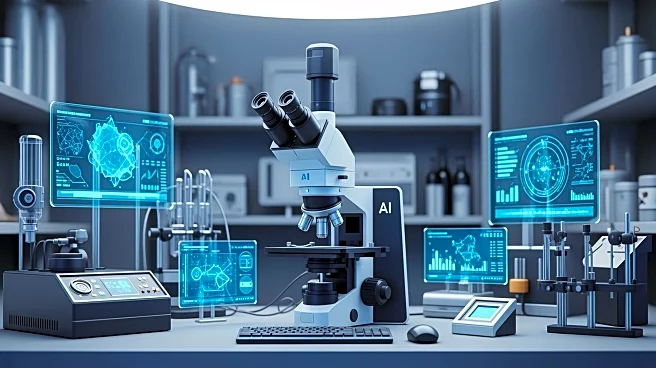What's Happening?
The Veeva Commercial Summit 2025, held in Madrid, showcased significant advancements in AI integration within the life sciences industry. Veeva's President, Europe, Chris Moore, emphasized the company's role as a partner to the industry, providing cloud-based
solutions for life sciences. The summit highlighted the next wave of AI, with Veeva's Vice President, Commercial Strategy Europe, Philipp Luik, discussing the integration of agentic AI into Veeva's Commercial and Data Clouds. This AI aims to optimize operations, assist in drug discovery, and enhance treatment processes. Veeva AI, announced last year, is now being integrated into the Vault Platform, offering secure content and data access.
Why It's Important?
The integration of AI into life sciences represents a transformative shift in how the industry operates, potentially increasing productivity and precision by over 30%. Veeva's approach to embedding AI deeply within applications ensures compliance and continuous innovation. This development is crucial for pharmaceutical companies as they navigate complex market strategies and strive to improve patient outcomes. The use of AI in life sciences can lead to more efficient drug discovery processes, better patient care, and streamlined operations, ultimately benefiting the entire industry.
What's Next?
Veeva plans to roll out its agentic AI capabilities in December 2025, with further expansions scheduled for 2026. By the end of 2026, Veeva aims to have AI-enabled areas across the entire Vault CRM Suite. This rollout will include applications in PromoMats and Medical Platforms, enhancing the capabilities of Veeva's Commercial Cloud. As AI becomes more integrated into life sciences, companies will need to adapt to new technologies and strategies to remain competitive and meet the evolving needs of patients and healthcare providers.
Beyond the Headlines
The integration of AI into life sciences raises ethical considerations regarding data privacy and the role of technology in healthcare. As AI systems become more prevalent, ensuring compliance with regulations such as HIPAA is essential to protect patient information. Additionally, the shift towards AI-driven processes may impact the workforce, requiring new skills and potentially altering job roles within the industry.

















